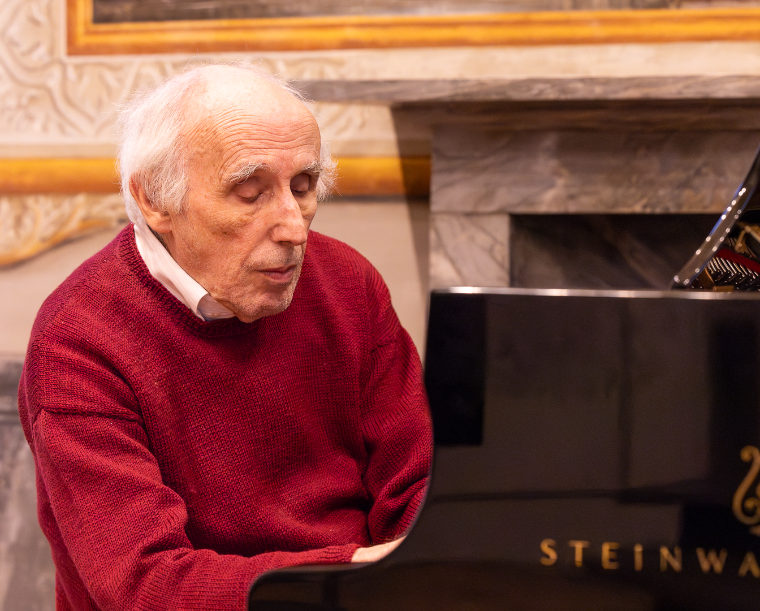Docente

Bruno Canino
He was born in Naples, in the Vomero district. His father, an engineer with a passion for music and amateur pianist, often takes him to the Teatro San Carlo to listen to the opera. The very young Canino soon fell in love with Giacomo Puccini’s melodrama. In his house there is a piano and after a year of self-taught studies with the help of his father, he becomes a pupil of Vincenzo Vitale, an illustrious Neapolitan master, with whom he completes the lower level at the San Pietro Conservatory in Majella. He completed his studies under the guidance of Enzo Calace at the Milan Conservatory, where he studied composition with Bruno Bettinelli. Immediately considered one of the best accompanist pianists around, he also distinguished himself as a concert performer in the international competitions of Bolzano (“Ferruccio Busoni”) and Darmstadt at the end of the fifties.
He then began a long career as a concert and chamber musician all over the world, during which he collaborated with artists such as Cathy Berberian, Severino Gazzelloni, Itzhak Perlman, Salvatore Accardo, Oleksandr Semchuk, Uto Ughi, Alessio Bidoli, András Schiff, Ksenia Milas, Viktoria Mullova, (with whom she won the Edison Prize in 1980), Luisa Sello and David Garrett
He played for many years in piano duo with Antonio Ballista and in the Milan Trio (first with Cesare Ferraresi, then with Mariana Sirbu -violin- and Rocco Filippini -cello-). He has attended the modern and contemporary repertoire with particular assiduity (Busoni, Berio, Stockhausen, Rihm, Kagel), also collaborating with young instrumentalists. Among his most important recordings: the Goldberg Variations by Johann Sebastian Bach, the complete piano works by Alfredo Casella and the first complete piano works by Claude Debussy on compact disc.
He was a piano teacher at the Milan Conservatory and at the Bern Hochschule. He regularly gives master classes in musical institutions around the world. He is currently a music teacher at the Fiesole Music School and has taught at the Escuela Reina Sofia.
He also exercised the activity of artistic director for some organizations (such as the Giovine Orchestra Genovese, from 1986 to 1995), and in 1999-2002 he was musical director of the Venice Biennale.
He is married and has three children: Barbara, Giovanni and Serena. Only the youngest Serena followed in her father’s footsteps.